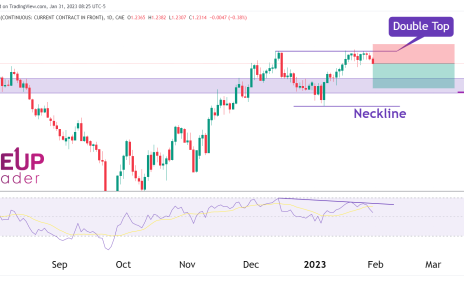- Introduction to trading psychology
- Why trading is a mental game
- Trading psychology exercise to try
Trading Psychology
Everything we do in life becomes easier to do the more times we do it. It is no different in trading; however, this is only so on the technical side. Regarding trading psychology, our past losses, wins, potentials, missed opportunities, and regrets play havoc on our minds every time we step inside the battleground of trading. The problem here is that it’s all unconscious, and we do not, even for a second, look at ourselves and analyze what is happening within us. This is precisely why most traders make no progress in trading.
Trading is an internal game; it’s all in our heads, and once we understand that, we can master ourselves and, in turn, master the markets. The tremendous fear, heightened heart rate, and stress we feel when we are about to pull the trigger is something we assume is normal. We must self-examine and ask ourselves these questions: What am I doing? How am I feeling? How am I taking this trade?
We must understand that to be successful in trading and investing, our emotions must be under control. It is an absolute requirement; no progress can be made without it. Traders who refuse to undergo the difficulty of controlling their psychology will continue to endure loss after loss until they pick up the practice.
Why are emotions so strong when trading?
When we trade, we engage our primal element: fight or flight. We may run from the opportunity because of fear or take on too much risk, which is greed. Greed and fear are what move the markets, and only the trader who is well-grounded psychologically will know this. The trader who has worked on his psychology only thinks in probabilities; he feels no emotional rush when he takes a trade because he has completely accepted that it may be a loss. He has set his risk and his targets, and he knows that either can be hit, the outcome is out of his control now, and he is calm.
We often want to be in control of everything in our lives, so trading is a great challenge that can improve our lives as a whole, but only when we work on the psychological aspect.
This article aims to help traders understand that they can only make so much progress on charting and technicals, but the real work is done when they work on their emotions.
An exercise to begin:
Every day before trading, spend 15 minutes visualizing how you want to approach the trading day. Do you want to mindlessly gamble? Or you want to take quality setups where the probabilities are in your favor. See yourself trading like a professional, in control at all times, accepting any losses that come your way. Do not say, “this will happen, and if this happens, I will do this,” because that will mean you are trying to forcefully predict the trading day. Just view yourself as staying calm and relaxed, following your plan, and looking at the charts objectively.
At the end of the trading day, preferably before sleep, spend some time reviewing your day. Go over the decisions you made, and question yourself. Observe the times you lost control, got emotional, or irrational. Were there any instances you refused to follow your plan? If so, remind yourself very seriously that progress will never be made unless you stick to your trading plan! Now attempt to rectify your decisions by visualizing yourself making the correct ones.
Remember, a losing trade does not mean it’s bad; if you followed your plan, you would be calm, and the trade would actually be a good one. The only trades that are ‘bad’ are when you deviate from your plan, even if they end up as winners.
The exercise is designed to instill good habits and remove bad ones and must be done diligently with the intention of becoming a better trader.





